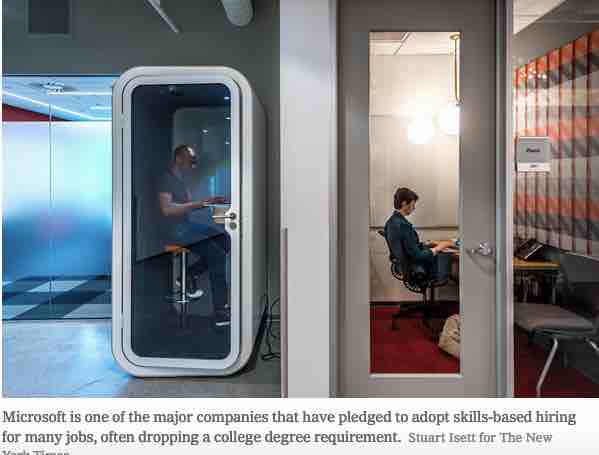For the past four decades, incomes rose for those with college degrees and fell for those without one. But a body of recent and new research suggests that the trend need not inevitably continue.
As many as 30 million American workers without four-year college degrees have the skills to realistically move into new jobs that pay on average 70 percent more than their current ones. That estimate comes from a collaboration of academic, nonprofit and corporate researchers who mined data on occupations and skills.
The findings point to the potential of upward mobility for millions of Americans, who might be able to climb from low-wage jobs to middle-income occupations or higher.
But the research also shows the challenge that the workers face: They currently experience less income mobility than those holding a college degree, which is routinely regarded as a measure of skills. That widely shared assumption, the researchers say, is deeply flawed.
“We need to rethink who is skilled, and how skills are measured and evaluated,” said Peter Q. Blair, a labor economist at Harvard, who was a member of the research team.
In recent years, labor experts and work force organizations have argued that hiring should increasingly be based on skills rather than degrees, as a matter of fairness and economic efficiency. The research provides quantified evidence that such a shift is achievable.




